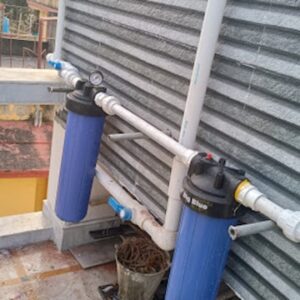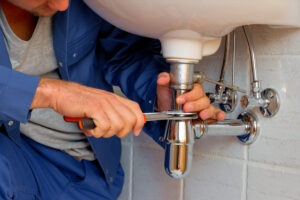Plumbing is often one of those home systems we take for granted until something goes wrong. A slow-draining sink, a dripping faucet, or a toilet that runs continuously might not seem urgent, but these small signs can signal bigger issues waiting to unfold. Delaying plumbing repairs can lead to costly consequences, damage to your property, and even health hazards. Taking action early can save you from major expenses and a great deal of stress. Here’s why it’s crucial not to postpone plumbing fixes.
Minor Leaks Can Lead to Major Damage
 What starts as a small drip can quickly escalate into structural issues. Water is incredibly invasive; when left unchecked, it can seep into floors, walls, and ceilings, compromising the integrity of your home. That tiny leak under the kitchen sink might seem harmless, but over time it can rot cabinetry, destroy flooring, and even weaken foundation supports if left unresolved.
What starts as a small drip can quickly escalate into structural issues. Water is incredibly invasive; when left unchecked, it can seep into floors, walls, and ceilings, compromising the integrity of your home. That tiny leak under the kitchen sink might seem harmless, but over time it can rot cabinetry, destroy flooring, and even weaken foundation supports if left unresolved.
Moisture also creates the perfect environment for mold and mildew to thrive, and once it spreads, the cost of removal and repair multiplies. It’s not just about the appearance or unpleasant odor—mold poses a serious health risk, particularly for individuals with allergies, asthma, or compromised immune systems.
Increased Utility Bills Drain Your Wallet
Even small plumbing problems can hit you in the pocketbook. A leaking faucet or running toilet may waste hundreds of gallons of water each month. Not only is this harmful to the environment, but it also adds up to noticeable increases in your water bills.
When plumbing repairs are delayed, the inefficiencies in your water system become an ongoing cost. Rather than continuing to pay extra month after month, it’s far more economical to fix the issue promptly. Addressing problems right away ensures your plumbing system runs efficiently, saving you money in the long run.
Hidden Issues Can Escalate Unexpectedly
Plumbing systems are largely hidden behind walls and under floors, which makes detecting and diagnosing problems a challenge without professional help. What might appear to be a minor issue on the surface could be a sign of something much more serious happening out of sight. For example, a slow drain might be caused by a buildup of debris, but it could also point to a broken pipe or tree root intrusion.
Delaying repairs allows these hidden issues to worsen over time, which can lead to unexpected emergencies such as a burst pipe or a flooded basement. These scenarios are not only more expensive but also disruptive and potentially dangerous.
Mold and Bacteria Growth Poses Health Hazards
Standing water, persistent dampness, and leaks create a breeding ground for mold, mildew, and bacteria. The spores from mold can circulate through your home’s air, leading to respiratory issues, allergic reactions, and general discomfort.
Additionally, stagnant water from leaky pipes can attract pests and harbor bacteria that may pose health risks to you and your family. Delaying plumbing repairs increases the chances of encountering these hazards, which could have been avoided with early intervention.
Water Pressure Problems Can Get Worse
Low water pressure can be more than just a minor inconvenience—it often signals a deeper problem in your plumbing system. Whether it’s due to a blockage, corrosion in the pipes, or a hidden leak, ignoring the issue can cause your plumbing system to deteriorate further. Eventually, the water pressure could drop significantly or stop altogether.
Restoring normal pressure often requires tracing the root cause, which becomes more complex and costly as time passes. Acting early when you notice changes in pressure helps prevent a total system failure and keeps your home functioning smoothly.
Delays Can Violate Insurance Terms
Many homeowners are unaware that delaying plumbing repairs can impact their home insurance coverage. Insurance companies often expect homeowners to perform routine maintenance and address known problems promptly. If you ignore a plumbing issue and it results in damage, your insurer may view it as negligence and refuse to cover the repairs.
Being proactive not only protects your home but also ensures you remain compliant with your insurance policy. It’s an important factor to consider, especially in the event of a significant plumbing-related incident.
Repairs Now Are Cheaper Than Replacements Later
There’s a significant difference between the cost of a minor plumbing repair and a full system replacement. A small leak may require a quick pipe patch or tightening, whereas leaving it to worsen might mean replacing an entire section of piping, drywall, flooring, or cabinetry.
Emergency plumbing services are also more expensive than scheduled repairs. Waiting until the problem becomes urgent means you may have to pay premium prices for after-hours assistance. Avoiding that financial strain starts with timely attention to even the smallest plumbing issues.
Your Daily Routine Depends on It
 Few things disrupt a household like a plumbing emergency. Whether it’s a burst pipe, an overflowing toilet, or no access to clean water, these issues quickly throw your daily routine into chaos. From morning showers to cooking dinner, plumbing plays a critical role in everyday comfort and convenience.
Few things disrupt a household like a plumbing emergency. Whether it’s a burst pipe, an overflowing toilet, or no access to clean water, these issues quickly throw your daily routine into chaos. From morning showers to cooking dinner, plumbing plays a critical role in everyday comfort and convenience.
Delaying repairs increases the risk of sudden disruptions. Taking care of problems as soon as they arise ensures that your household runs efficiently and comfortably, without the stress of surprise breakdowns.